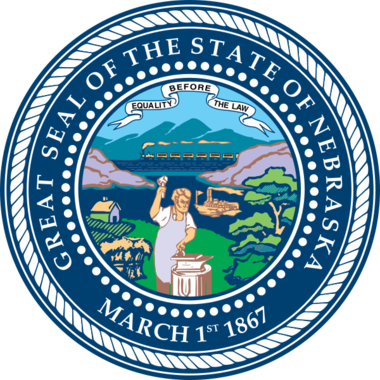Nebraska senators tread warily with gay, transgender issues

Lincoln, Neb. (AP) — By rejecting bills this session on either side of gay and transgender issues, Nebraska lawmakers acknowledged that while they're willing to take stands on some social issues, they're hesitant to tackle matters dealing with gay and transgender rights.
On Friday, Sen. Mark Kolterman of Seward pulled a bill that would protect state funding for faith-based child placement agencies that refuse to work with gay, lesbian, bisexual and transgender foster parents. Kolterman said he didn't have enough support to overcome a threatened filibuster.
That followed the rejection last week of a bill that would have provided workplace protections for gay and transgender employees.
In the last few years, Nebraska's Legislature has waded into controversial issues, including repealing its death penalty, rejecting some gun rights and anti-abortion legislation, and considering a measure to legalize medical marijuana.
But at a time when lawmakers in Georgia and North Carolina have taken action to slow or reverse the expansion of rights for gay and transgender residents, Nebraska legislators have decided now isn't the time to take up the matter.
Georgia legislators approved a "religious freedom" measure that would let individuals, businesses and organizations deny services to people based on their religious beliefs, but it was vetoed by Gov. Nathan Deal. North Carolina lawmakers approved a law that was signed into law that excludes lesbian, gay, bisexual and transgender people from anti-discrimination protections, among other provisions.
Former Nebraska Sen. Greg Adams, who was speaker of the House from 2013 through 2014, said it's not Nebraska's nature to be on the cutting edge of such issues. He said it's not only when dealing with matters of sexual orientation, noting the state had repeatedly taken up but not approved expansion of Medicaid.
"We really, quite often, drag behind," he said. "In some domains there's value in that. You can see what other experiments have worked or failed in other states before you launch into it. Look at Medicaid, it may never come about in Nebraska, but if it does, we'll be one of the last states to do it."
Without party leaders to mandate votes, senators in the nonpartisan Legislature are left to decide based more on their personal convictions and views from their districts. Sometimes that means avoiding controversy as long as possible, Adams said.
"Behind closed doors you almost say, I just wish this issue wouldn't even come up," he said. "Because however you vote on it — I'm damned if I do, I'm damned if I don't, not only with my colleagues, but with constituents. If it drifts away...one less stress."
Sen. Patty Pansing Brooks of Lincoln, who co-sponsored the bill banning workplace discrimination for gay and transgendered people, said she thinks there was majority support for the measure, but lawmakers worried about the response from constituents.
"I think that a good portion of them have their hearts in the right place, but they're afraid," said Pansing Brooks.
The Omaha and Lincoln chambers of commerce supported the workplace protections, and a survey by the University of Nebraska-Lincoln has found increasing public support for such a measure.
But Carl Eskridge, a Lincoln City Council member, said the state remains divided on such protections.
Eskridge in 2012 introduced a city ordinance to add sexual orientation and gender preference to a list of factors that are protected against discrimination in housing, employment and public accommodations. After the council unanimously passed Eskridge's ordinance, a petition drive backed by faith-based organizations forced the measure to either be repealed by the council or approved by voters.
The council has elected to do nothing, and ordinance has sat untouched for four years.
Eskridge said the council will likely focus on creating a welcoming community rather than risk an uncertain vote that would "pit neighbors against neighbors."
Omaha approved a similar policy in 2012 that includes exemptions for religious organizations. Since it took effect, Omaha's Human Rights and Relationship Department has recorded 10 complaints of discrimination based on sexual orientation with seven resulting cases.
Sen. Bob Krist of Omaha, who voted to kill the workplace discrimination bill, said he expects Nebraska to pass workplace protections for members of the LGBT community within a few years, but its advocates have not provided a solid bill with hard evidence of its necessity.
"Some of it is subject matter, but some of it is, do we have a compelling reason to change what already is in the law? I think most of the people in here would say no," Krist said.
By Anna Gronewold, Associated Press. Copyright 2016 The Associated Press. All rights reserved. This material may not be published, broadcast, rewritten or redistributed.
The Gayly – April 2, 2016 @ 7:35 a.m.





